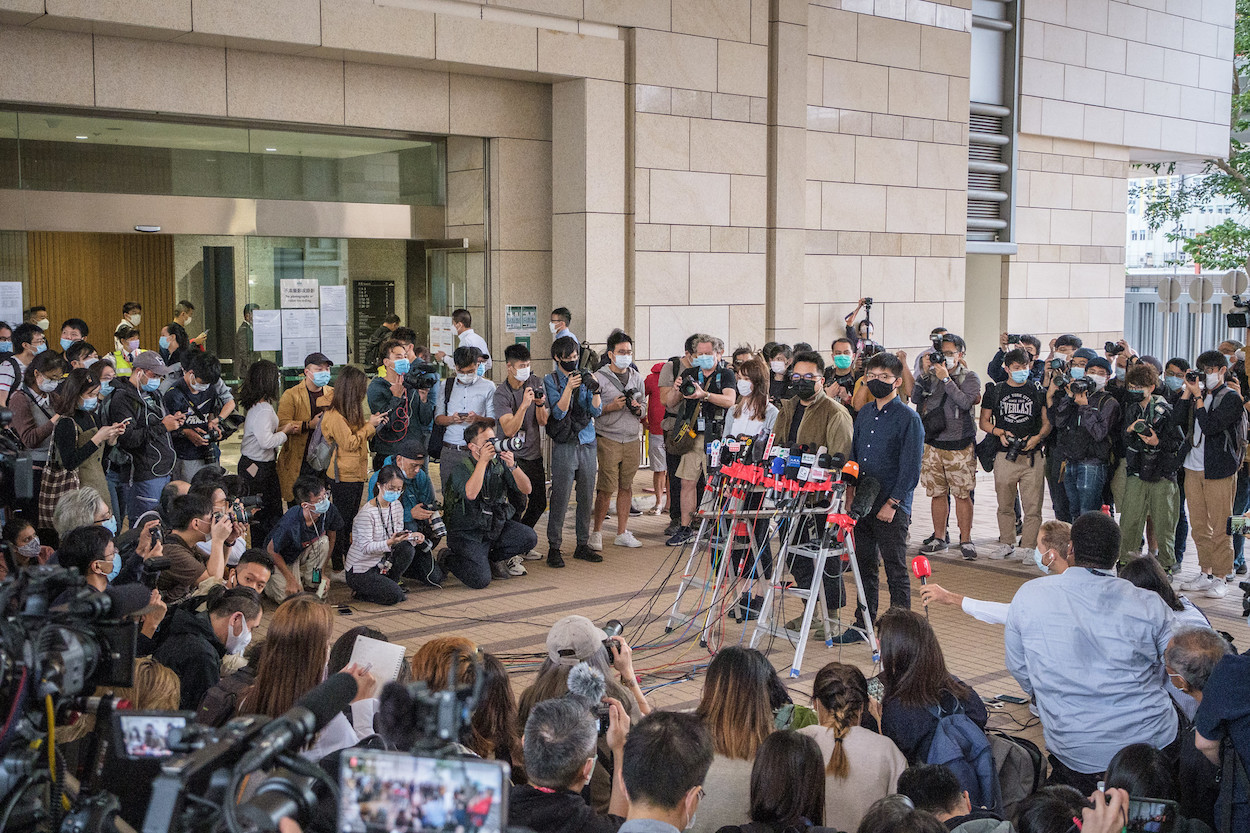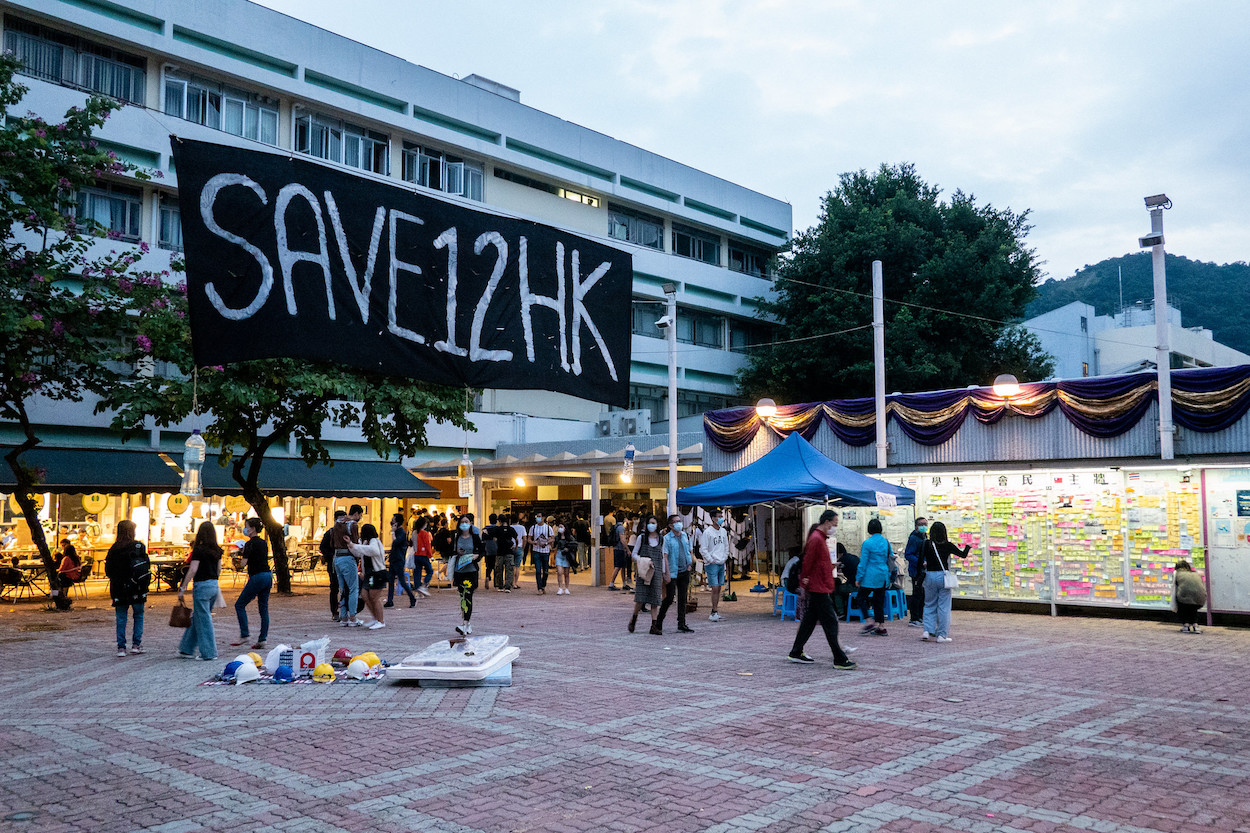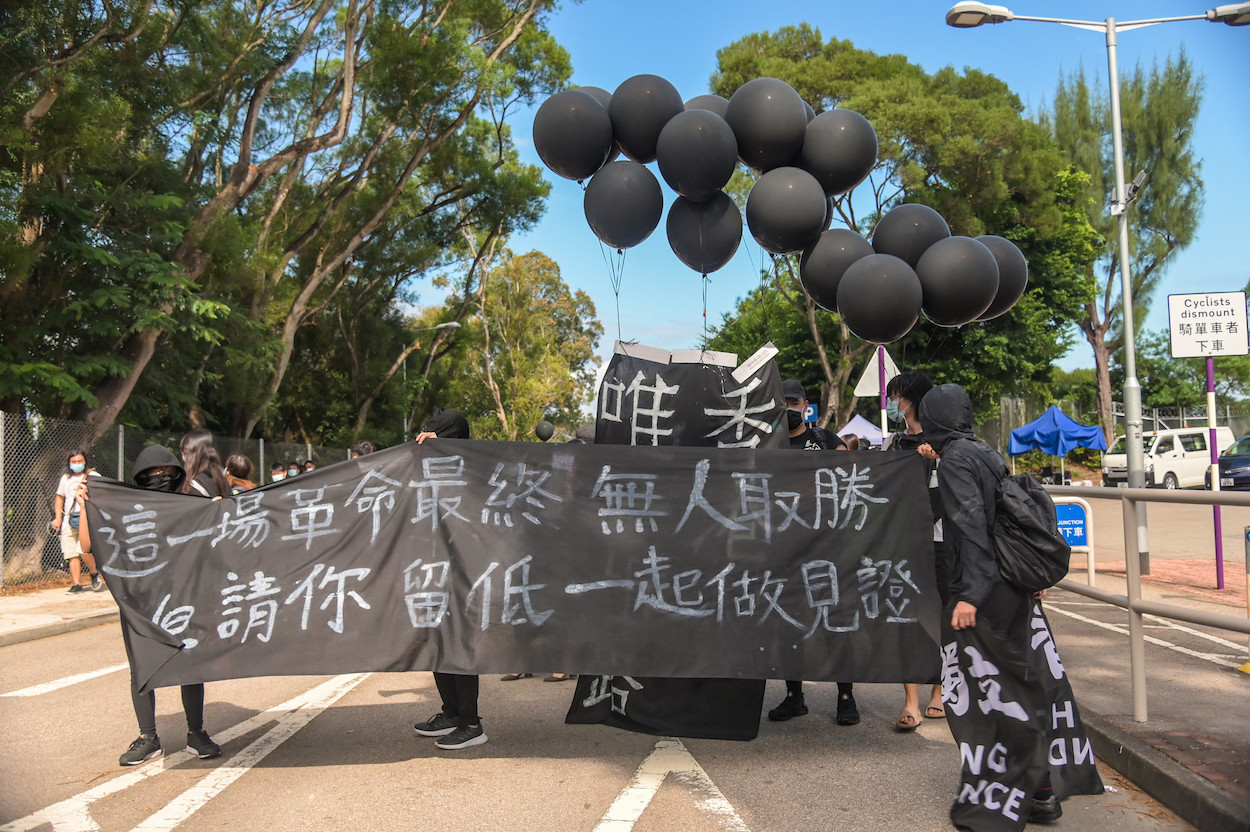by Brian Hioe
語言:
English
Photo Credit: Studio Incendo/Flickr/CC
A WAVE OF arrests has taken place in Hong Kong over the past week. Three former leading members of the now-disbanded Demosisto were the latest to be arrested, with Joshua Wong, Agnes Chow, and Ivan Lam pleading guilty yesterday to charges related to a protest that took place last year. Wong, Chow, and Lam are 24, 23, and 26 respectively.
Wong pleaded guilty to organizing and inciting the protest, Lam pleaded guilty to incitement, and Chow pleaded guilty to inciting and participating in the protest. Because of the three guilty pleas, the three were immediately sent to jail for sentencing. It is possible that they could be jailed for up to five years. Demosisto was formed after the Umbrella Movement from Wong’s previous group, Scholarism, as a youth-oriented political party but the group announced its disbandment earlier this year to avoid members being targeted under the national security law.
 Photo credit: Studio Incendo/Flickr/CC
Photo credit: Studio Incendo/Flickr/CC
Wong, however, stated in public comments that he faced relatively light charges from early on in the protests that have taken place in Hong Kong over the past year and on Twitter sought to redirect attention to the plight of twelve Hongkongers currently imprisoned in China after attempting to flee to Taiwan. The twelve Hongkongers, the youngest of which was sixteen and the oldest of which was thirty-three, were intercepted by the Chinese coast guard, then detained without access to lawyers.
Wong had stated that, as Hong Kong’s most internationally known dissident, it was anticipated that he would eventually be targeted by the national security law passed in June. Wong has faced previous arrests this year, such as in May and September, but the severity of charges against Wong are increasing. Wong has cited being abused during previous stints in jail, including being interrogated while forced to squat naked.
Another recent arrest had to do with efforts by Hongkongers to flee to Taiwan. Wan Yiu-sing, an online radio DJ better known as Giggs on the Internet radio channel D100, was arrested along with his wife and assistant on charges of money laundering and violating the national security law. Giggs was accused of raising funds to assist Hong Kong protesters fleeing to Taiwan, his radio program having often focused on protest-related issues and openly crowdfunded to support protesters.
More generally, the media is coming under increasing scrutiny from authorities in Hong Kong. Bao Choy, a journalist for public broadcaster RTHK, was arrested earlier this month and prevented from communicating with colleagues. Choy was arrested on charges of making false statements under the Road Traffic Ordinance for searching for information on cars in a publicly accessible database, while investigating cars near where attacks by individuals thought to be gangsters on protesters in Yuen Long last July took place.
 Photo credit: Studio Incendo/Flickr/CC
Photo credit: Studio Incendo/Flickr/CC
Through conducting these searches, Choy was hoping to identify the attackers. The fact that the Hong Kong government is legally prosecuting journalists carrying out investigative reports is likely to have a chilling effect on the media going forward. Previously, RTHK was reported as having reopened an investigation into journalist Nabela Qoser, known for her confrontational questioning of Hong Kong Chief Executive Carrie Lam at press conferences, after having suspended her for three years on probation as a civil servant, then extended this probation by another 120 days.
Three former pro-democracy legislators, Ray Chan, Eddie Chu Hoi-dick, and Ted Hui, were also arrested earlier this month over charges related to throwing a foul-smelling liquid in the legislature during two incidents earlier this year as an act of protest. The incidents took place in May and June.
The three arrests follow suit on the arrest of seven pro-democracy legislators earlier this month, four of which were then active legislators, for charges related to scuffles that broke out in the legislature in May. The legislators, which again included Ray Chan and Eddie Chu Hoi-dick, were accused of interfering in the operation of the legislature. While pro-Beijing legislators also scuffled with pro-democracy legislators during the incident, they have not faced charges.
Since then, all pan-Democratic lawmakers in Hong Kong have resigned in protest after news broke that the Hong Kong government was planning on disqualifying four pro-democracy legislators for their continual filibusters within the legislature. This was again justified on the basis of these filibusters disrupting the functioning of the legislature, but done on the basis of new powers granted to the Hong Kong government by China’s National People’s Congress allowing the Hong Kong government to disqualify legislators at will, bypassing the court system.
With the apparent foreclosure of electoral means of resistance, pan-Democrats resigned as a means of forcing the issue, in order to avoid gradual attrition by the Hong Kong government. Yet it is the case that even after their resignation, Hong Kong legislators will continue to face charges regarding past acts of protest.
 Photo credit: Studio Incendo/Flickr/CC
Photo credit: Studio Incendo/Flickr/CC
District councilors, too, are increasingly coming under attack from the Hong Kong government. Kowloon City district councilor Timothy Lee Hin-long and Yuen Long district councilor Henry Wong Pak-yu were arrested earlier this week on charges of exaggerating their election expenses, while Shatin district councilor Li Chi-wang was arrested last week for acting in a disorderly way in public. Legal retaliation by the Hong Kong government against pro-democracy forces in Hong Kong is likely to continue, then.

